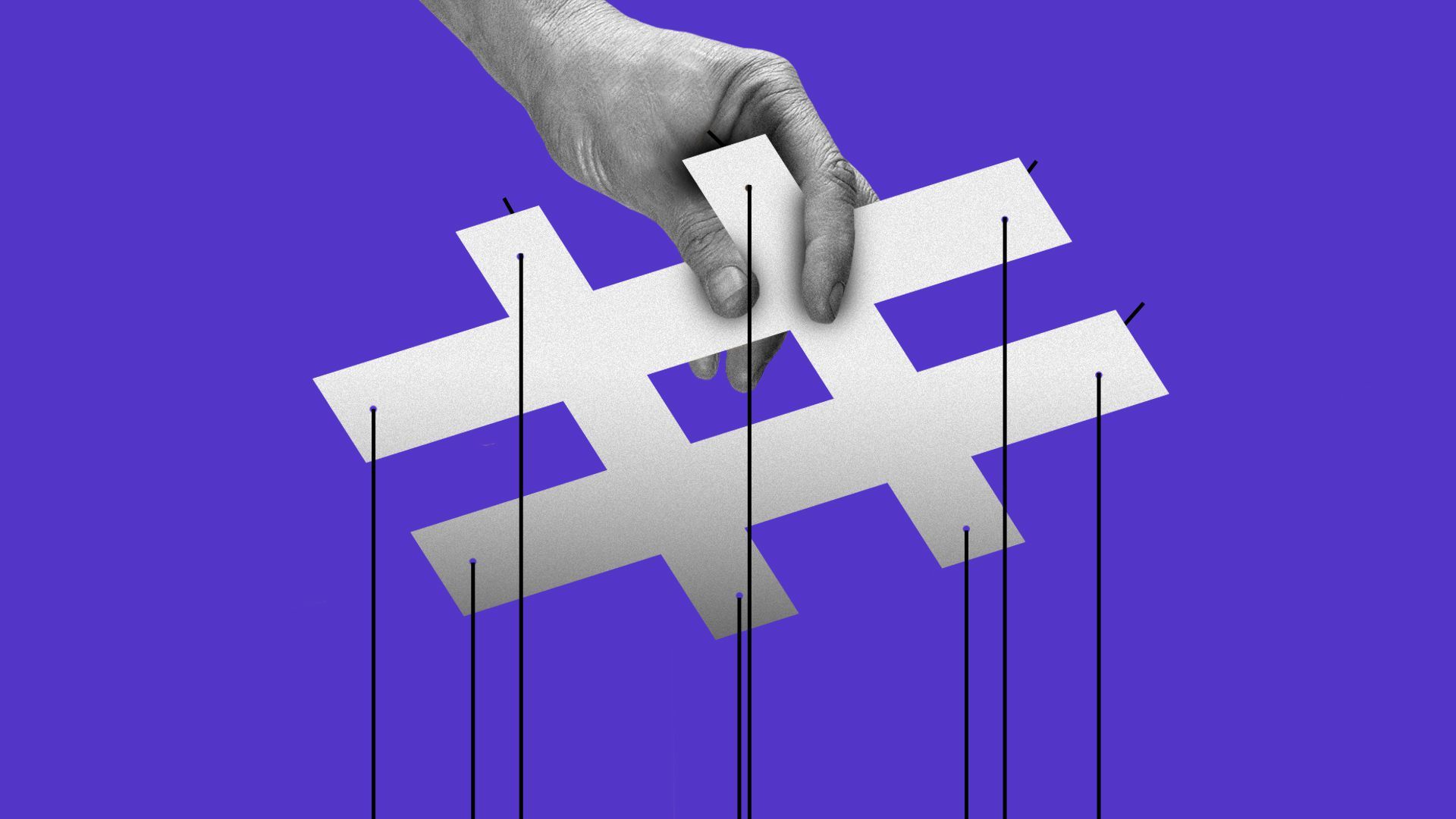Activist movements drive misinformation mayhem
Add Axios as your preferred source to
see more of our stories on Google.

Illustration: Aïda Amer/Axios
Activist movements promoting conspiracy theories and anti-vaccination lies are increasingly becoming the most dangerous spreaders of misinformation, according to researchers, often causing more real-world harm than state or government-backed groups.
Why it matters: Informal movements tend to rely on tactics — like coordinated harassment of health officials, journalists and influencers — that are hard to police without violating individuals' speech freedoms.
Driving the news: Facebook's parent company Meta on Wednesday said it removed an "adversarial" network of Pages and accounts affiliated with a European anti-vaccination social movement called "V_V."
- The movement, which was identified in conjunction with the risk intelligence firm Graphika, sought to bully people who hold pro-vaccination views, including health officials, into deleting their posts or making them private.
- Accounts often weaponized comments sections to efficiently spread anti-vaccination content. These tactics were used to intimidate authoritative figures, like journalists and health experts, to suppress their views, Meta said.
- V_V would also engage in offline harms, like defacing health clinics and trying to disrupt public vaccination programs, said Jack Stubbs, VP of intelligence at Graphika.
Between the lines: In order to be able to take action on movements like V_V, Facebook recently broadened its policies to ban tactics frequently used by members of broad social movements.
- "Brigading" tactics, which include mass commenting, posting or engagement intended to harass others or silence users or drown out opposing viewpoints, are now banned on the social network.
- "Mass reporting" tactics, where people work together to mass-report an account or content to get it taken down without merit, are also prohibited.
- Facebook said Wednesday it removed a campaign from Vietnam that used mass reporting tactics to falsely report accounts from activists and others who publicly criticized the Vietnamese government.
Be smart: These tactics require heavy levels of human coordination, which is increasingly being done via closed groups on loosely regulated platforms like Telegram.
- "All of the organization happens on Telegram and is carried out on other platforms like Facebook," said Stubbs, referencing V_V.
- What also makes social movements so difficult to police is members often use their own accounts to participate in harmful behaviors rather than hiding behind fake accounts, pseudonyms or bots.
- "This presents challenges for researchers, public bodies, and social media platforms that wish to address malicious activity while preserving freedom of speech and online expression," Graphika noted in its report about V_V.
The big picture: Loosely organized activist movements, particularly those centered around health conspiracies and politics, have become more prevalent online in recent months amid COVID-19.
- "People have become more emotionally and politically charged about vaccine issues," said Bryce Webster-Jacobsen, director of intelligence operations at GroupSense, a threat intelligence firm."We can trace it back to the increased polarization since the 2016 election," he said.
- These types of campaigns, he notes, can be more dangerous than bot-driven campaigns that are often backed by state or government actors with ample resources, because they link real-world people who can encourage each other to take more drastic actions.
- In January, believers of online election fraud conspiracies, like QAnon, came together to storm the U.S. Capitol.
Other activist movements also tend to use these tactics.
- “We’re seeing this a lot now with online conversations about schools and children,” said Webster-Jacobsen.
- Debates surrounding eduction have recently become more politically charged, especially around topics such as critical race theory.
The bottom line: "Responsible platforms need to step up their efforts to detect and block these gang assaults," said Paul Barrett, deputy director of the NYU Stern Center for Business and Human Rights. "The alternative is that targets of such attacks may be driven off platforms merely for expressing themselves."
